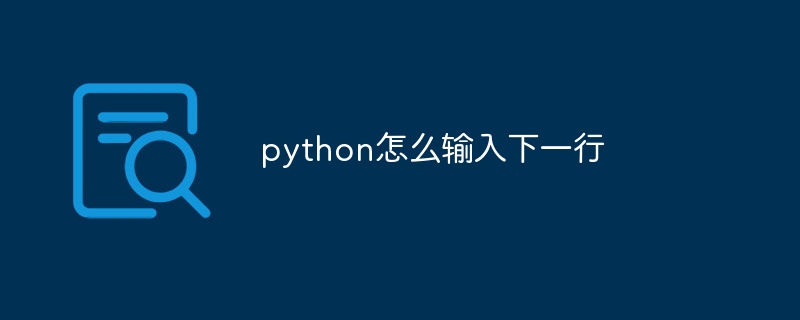
How to enter the next line in Python: input() function: Get input from the user and display a prompt message. sys.stdin.readline() method: Reads the next line from the standard input stream without displaying a prompt message. getpass() function: Gets sensitive information (such as passwords), hiding user input to prevent prying eyes.

How to enter the next line in Python
In Python, there are several ways to enter the next line. The simplest way is to use the input() function.
Use the input() function
The input() function gets user input from standard input. It accepts an optional parameter, the prompt message, which will be displayed to the user. For example:
name = input("请输入您的姓名:")
print("你好,", name)When the above code is executed, it will display a prompt message in the console and then wait for user input. The text entered by the user will be stored in the name variable.
Using sys.stdin
Another method is to use the sys.stdin object. sys.stdin represents the standard input stream, which provides a readline() method to read the next line. For example:
import sys
name = sys.stdin.readline()
print("你好,", name)This is similar to using the input() function, but it does not display any prompt message.
Use the getpass() function
For situations where sensitive information such as passwords need to be entered securely, you can use the getpass() function. getpass() The function hides text entered by the user to prevent it from prying eyes. For example:
import getpass
password = getpass.getpass("请输入您的密码:")
print("您的密码已保存。")When the above code is executed, it will display a prompt message in the console but will not echo the password entered by the user. The password will be stored in the password variable.
The above is the detailed content of How to enter the next line in python. For more information, please follow other related articles on the PHP Chinese website!




